Kare11
He grew the largest pumpkin in history — now about those seed

In setting a world record for largest pumpkin, Minnesotan Travis Gienger reached a goal he set as a teenager.
ANOKA, Minn. — It’s not always easy to see greatness before it blossoms.
But the seeds of success were already sprouting when we met Travis Gienger — the first time.
As usual, Travis was in his pumpkin patch.
“You can kind of tap it and see how thick the walls are,” Travis said as he crouched next to a massive pumpkin.

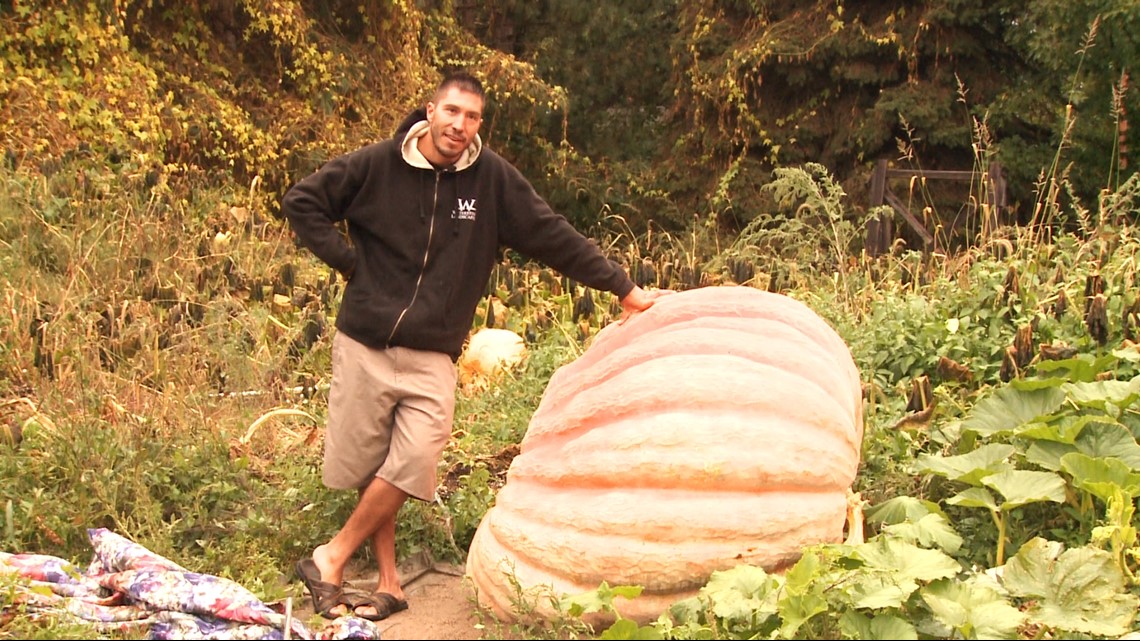
Electric fans purred around the clock to prevent rot in the well-irrigated pumpkin patch.
Depending on the time of day, Travis draped — and undraped — his largest pumpkin with a quilt.
“I put dark side out to let the sun heat it up,” the then-31-year-old said.
Years earlier, as a teenager, Travis was already dreaming.
Photos show him at 14 and 15, posing proudly with pumpkins ready for competition.

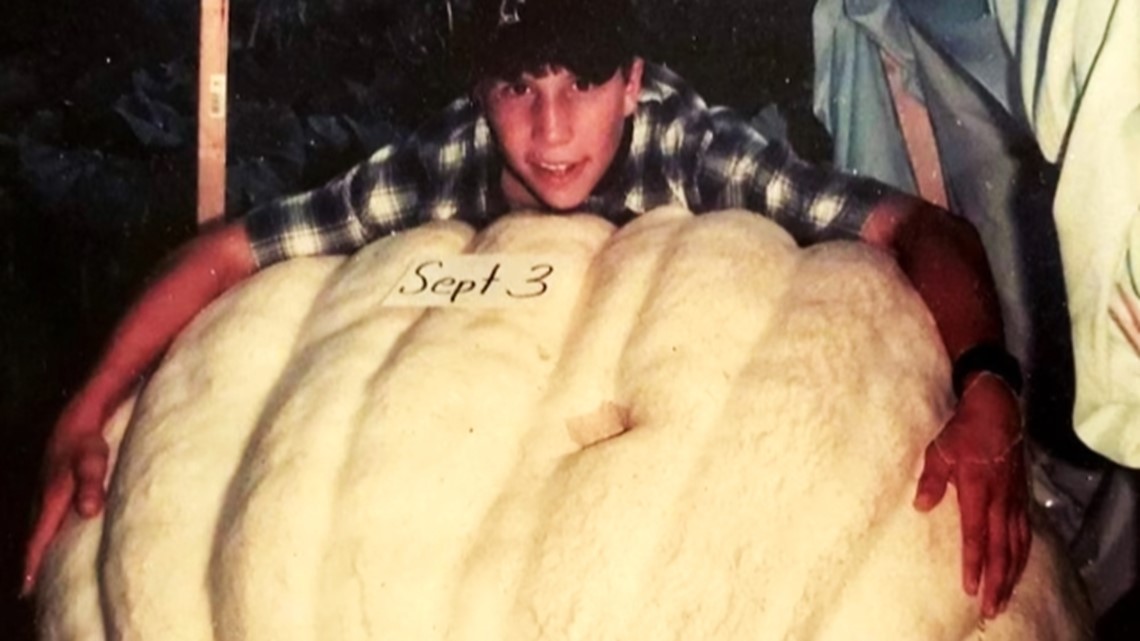
“I used to go to the dentist and sit there and read the ‘Guinness Book of World Records’ and see these guys, and I was like, ‘Oh, that’s kind of neat,’” Travis recalls.
So, he started his pumpkins under baby greenhouses, ran heat coils through their soil, fed them various concoctions several times a day, and gave them names.
“I named this one Chewbakka,” Travis told us in the garden 12 years ago.
All of which caused us to gently rib Travis about his prospects of winning, say, a wife.
“They tend to think you enjoy this stuff much more than them,” Travis said with a chuckle in 2011.
“We met the end of 2017 and then 2020 is when we got married,” Travis’ wife, Megan, tells us a dozen years later during our return visit to see Travis.
Between our visits, Megan and Travis also produced a little pumpkin.
“Lily, she just turned 2 in July,” Megan says. “She’s just the joy of our life.”

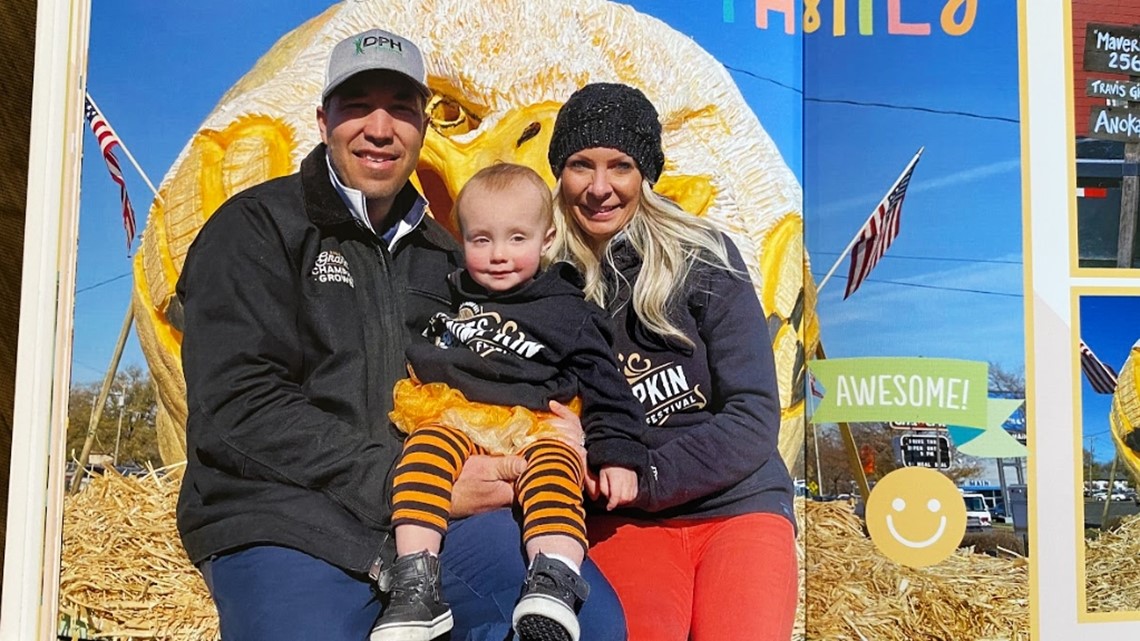
Lily is only starting to understand the depth of the pumpkin affection we witnessed 12 years ago, and the heartbreak her dad felt this summer when Travis’ largest pumpkin first revealed a small, but fatal, crack.
“That morning I was getting Lily ready for daycare and Travis had walked past the window, and I just saw the expression on his face.”
Megan continues, “I knew that something had happened to one of the pumpkins and I told Lily I think one of the pumpkins got hurt.”
Later that morning, Megan snapped a picture of Lily in the pumpkin patch, “just crying when we went out to visit Godzilla.”
Which makes what happened last month even sweeter.
Travis stood centerstage in Half Moon Bay, California as a sling gently lowered his second biggest pumpkin of the year onto a scale.

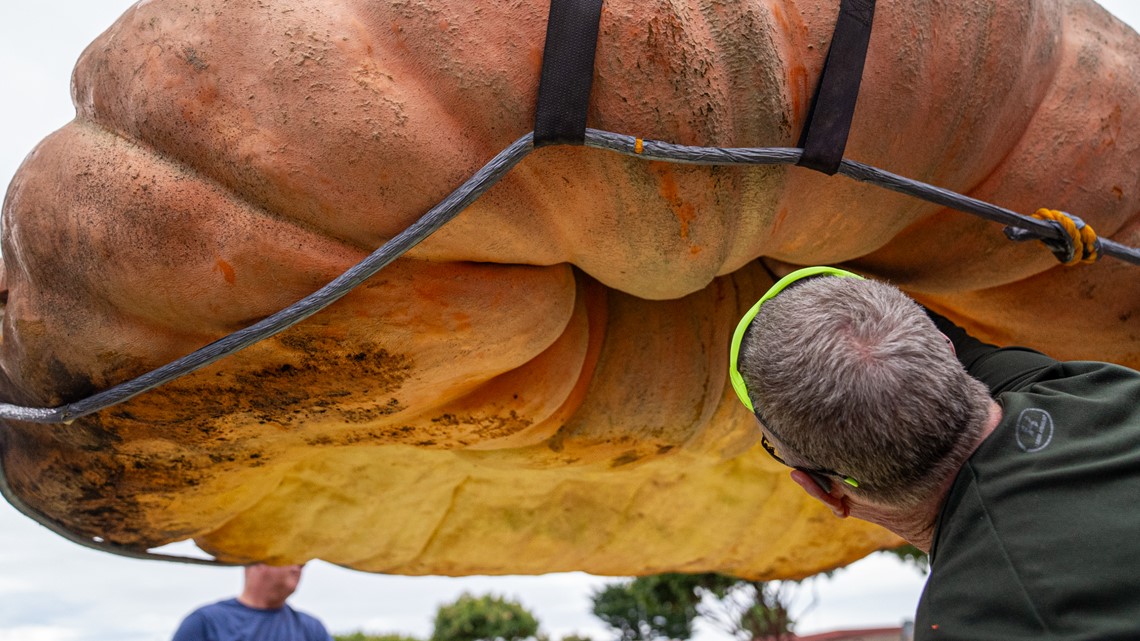
He’d pulled the pumpkin he named “Michael Jordan” on a trailer all the way from Minnesota.
Beneath the stage were hundreds of people who’d gathered for the World Pumpkin Championship Weigh-Off.
Like Travis, the crowd stood silently, all eyes fixed on a digital board above the scale.
The existing world record belonged to a pumpkin from Italy that weighed 2,702 pounds.
Travis jumped in excitement.
The PA announcer screamed, “2-7-4-9!”
Travis had broken the record by 48 pounds.

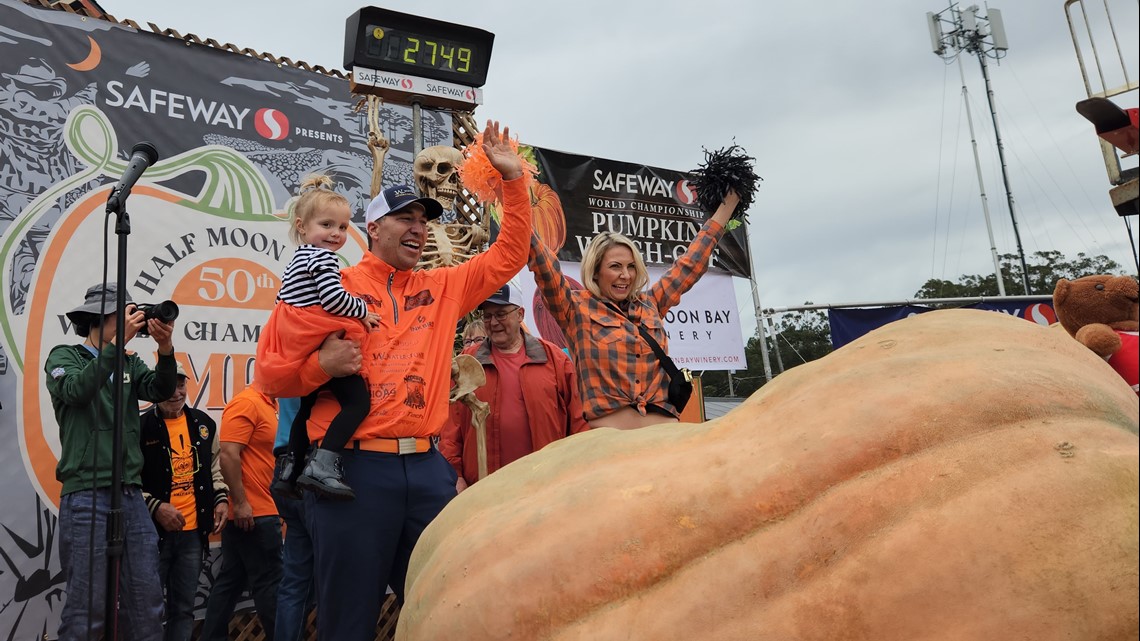
Pandemonium ensued as Travis pumped his fists, jumped around the stage, and began hugging everyone within reach.
Megan and Lily joined Travis on stage, as speakers blared Freddie Mercury singing, “We are the Champions.”
Travis had successfully made the transition from teen garden geek to world record holder about to collect $30,000 in prize money.
Twice before, he’d been recognized at Half Moon Bay as the grower of the year’s largest pumpkin, but this was his first world record.
Headlines carried Travis’ feat around the globe.
Anoka proclaimed Oct. 28, “Travis Gienger Day.”
Perched atop a pumpkin-orange Corvette, Travis carved a path as celebrity grand marshal through the city’s Halloween parade.
The pumpkin patch next to Travis’ home was blanketed by snow the day we visited Travis, 12 years after our first meeting.
“You can see the dirt,” Travis says, as he reaches through the first snow of the season to grab a handful of soil. “That’s it,” he says. “That’s what grew it.”
In Travis’ basement, a couple hundred seeds from his world record pumpkin sit on a window screen, repurposed as a drying rack.

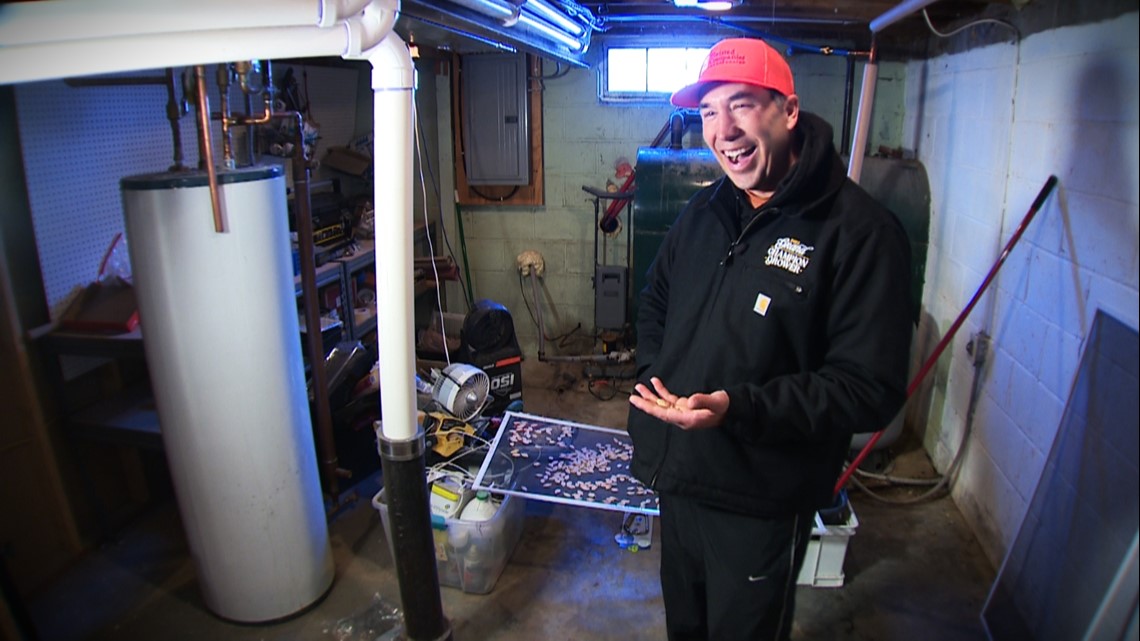
An electric fan runs non-stop.
Most of the seeds Travis will give to pumpkin clubs around the world that request them.
The rest, Travis plans to sell to other growers for $275 per seed.
“It’s a chance,” Travis says, looking down at the seeds. “You never know what it might lead to — maybe the first 3,000-pounder is sitting right here.”
So says a man who dreams big.
Boyd Huppert is always looking for great stories to share in the Land of 10,000 Stories! Send us your suggestions by filling out this form.
WATCH MORE ON KARE 11+
Download the free KARE 11+ app for Roku, Fire TV, Apple TV and other smart TV platforms to watch more from KARE 11 anytime! The KARE 11+ app includes live streams of all of KARE 11’s newscasts. You’ll also find on-demand replays of newscasts; the latest from KARE 11 Investigates, Breaking the News and the Land of 10,000 Stories; exclusive programs like Verify and HeartThreads; and Minnesota sports talk from our partners at Locked On Minnesota.
Watch the latest videos from the Land of 10,000 Stories in our YouTube playlist and subscribe to the Land of 10,000 Stories Complete Collection on YouTube.
Kare11
‘This doesn’t change anything’ Biden apology for Native American boarding schools draws mixed reaction


For the very first time, a sitting President has apologized for boarding schools that tore Native Americans apart and led to countless cases of abuse and death.
MINNEAPOLIS — During his first presidential visit to Indian Country on Friday, Joe Biden delivered a historic and emphatic apology, acknowledging 150 years of abuse, trauma and death inflicted by Native American boarding schools.
“I formally apologize, as President of the United States of America, for what we did,” Biden said. “It’s one of the most horrific chapters in American history,” said President Biden.
Christine Diindiisi McCleave, former CEO of the National Native American Boarding School Healing Coalition, spent years documenting the stories of boarding school survivors and advocating for justice and accountability by the US leaders.
“My family has two generations of boarding school history that I know of,” McCleave said, during an interview for the KARE 11 Series “Lost History,” which detailed the impact of boarding schools in Minnesota.
During his speech on Friday, President Biden acknowledged the work of the Native American Boarding School Healing Coalition and efforts to better understand the horrors and generational trauma the schools inflicted.
“Generations of Native children stolen, taken away to places they didn’t know,” Biden said. “Children abused emotionally, physically and sexually abused, forced into hard labor, some put up for adoption without the consent of their birth parents. Some left for dead in unmarked graves.”
Christine Diindiisi McCleave: “I struggle with what I’m supposed to say and what I really feel.”
Kent Erdahl: “Why do you say that?”
McCleave: “Well, because today is historic and while I am grateful to see this progress being made. I am also realizing just how short it falls… from real reparations, from real healing.”
She knows she’s not the only one who feels that way. The National Native American Boarding School Healing Coalition surveyed survivors in 2016.
“The thing they wanted the least was an apology because, while it is an acknowledgement, it doesn’t change anything,” McCleave said. “The majority of them said they wanted a truth commission. Trying to find out exactly how many boarding schools existed, how many children went to those boarding schools and how many children died at those schools.”
She says an investigation led by Interior Secretary Deb Haaland, whose grandparents and mother were among those sent to these schools did help better understand that impact, but it only scratched the surface.
“They were only able to investigate the Federal Government’s records,” McCleave said. “Half of these schools were run by churches, of various denominations, and so a truth commission would be able to look into those records as well.”
“Nearly one thousand documented Native child deaths, though the real number is likely to be much, much higher,” Biden said on Friday.
Bills in both the House and the Senate could make that commission a reality, but until that happens, Christine says she can’t ignore the politics of an apology that took place in a swing state, just days before an election.
McCleave: “This apology doesn’t change anything for my mother, who was abused as a child. Of for my grandfather who was a abused at a Catholic Indian Boarding School.”
Erdahl: “Do you hope that this isn’t just an election ploy?”
McCleave: “I hope that this apology actually helps that bill get passed. Native American people are no stranger to being political pawns, so you know what, if this is an election ploy so be it, I hope something good comes out of it.”
Kare11
Hazelden addiction, recovery experts host first cannabis summit
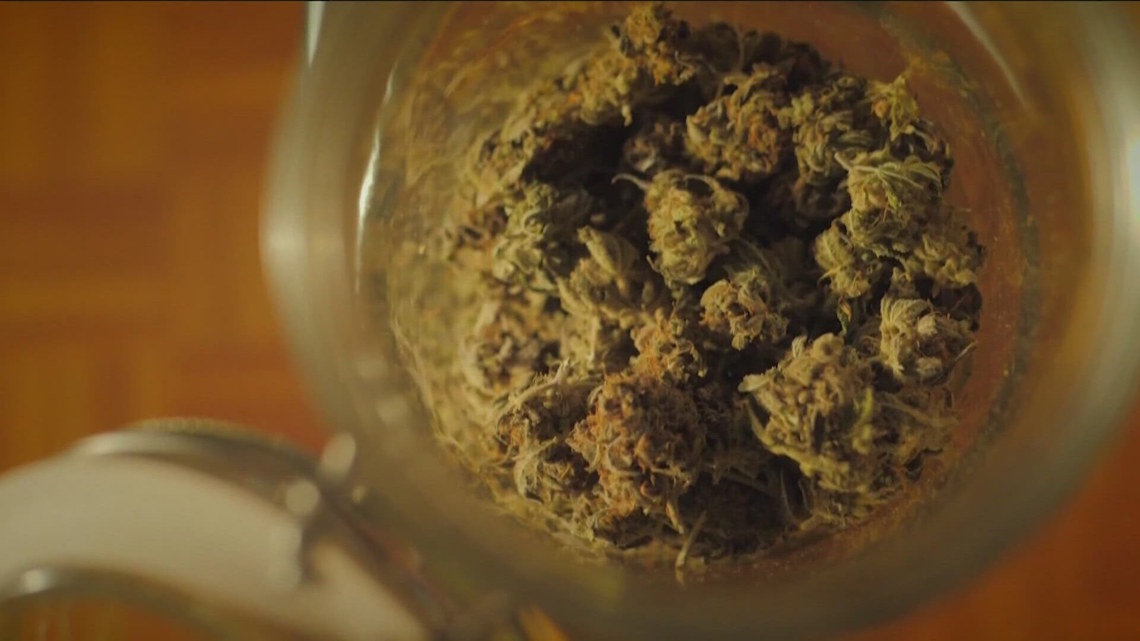

Researchers spoke about increased THC potency and the impact on youth brain development.
ST PAUL, Minn. — Whether purchased from dealer or dispensary, weed has become more potent over the years. In 2022, the federal government reported THC levels more than tripled since 1995.
Hazelden Betty Ford Foundation Graduate School addressed this Friday at its first cannabis summit. Attendees primarily included the nonprofit’s graduate students as well as undergraduate students from nearby universities.
Speakers included researchers from the University of Minnesota, Hamline University, Mitchell Hamline School of Law and others.
Ken C. Winters, is a senior scientist at the Oregon Research Institute’s Minnesota location and a consultant for the University of Iowa’s Native Center for Behavioral Health.
He covered the interplay between youth, cannabis and health.
“It’s not your grandparents’ marijuana these days,” Winters said to the students.
The Hazelden Betty Ford Foundation Graduate school offers a 2-year program, in which students like John Ryan and William Barksdale are earning counseling degrees in substance use and mental health.
“The takeaway would be that you’ve seen potency levels increase quite a bit, and the research is trying to keep pace with that,” Barksdale said.
“As we saw today, marijuana use has gone up in the last couple years such that it’s eclipsed alcohol use in terms of daily users in the United States,” Ryan added. “It’s is much more concerning now because there is such a higher degree of potency that’s available on a wider basis.”
Ryan says it’s especially concerning for youth.
“The subject of the last presentation, which I found quite engaging, was the specific effects on adolescents,” he said. “So, teenagers and people within that young adult range, the 18 to 25-year-olds because that’s generally the period the most brain development takes place. So that’s the area of concern … but it’s still something that I think is being studied and being observed in the first stages of that.”
Kevin Doyle provided opening remarks. He has more than 35 years of experience as a licensed professional counselor. Today, he’s president and CEO of the grad school.
“Potency, dosage, frequency of use, availability, legal cutoffs in terms of age, all those things need to be talked about,” Doyle said. “Adolescent brain development. We know more and more about that every year. Sometimes it seems like every day we learn more about that.”
“How do we as a treatment community need to be prepared to respond?”
The summit comes as Minnesota works to set rules for the cannabis industry after legalizing the drug for recreational use last year. A public comment period is expected later this fall.
Kare11
Health care workers rally for aid for Palestine’s hospitals
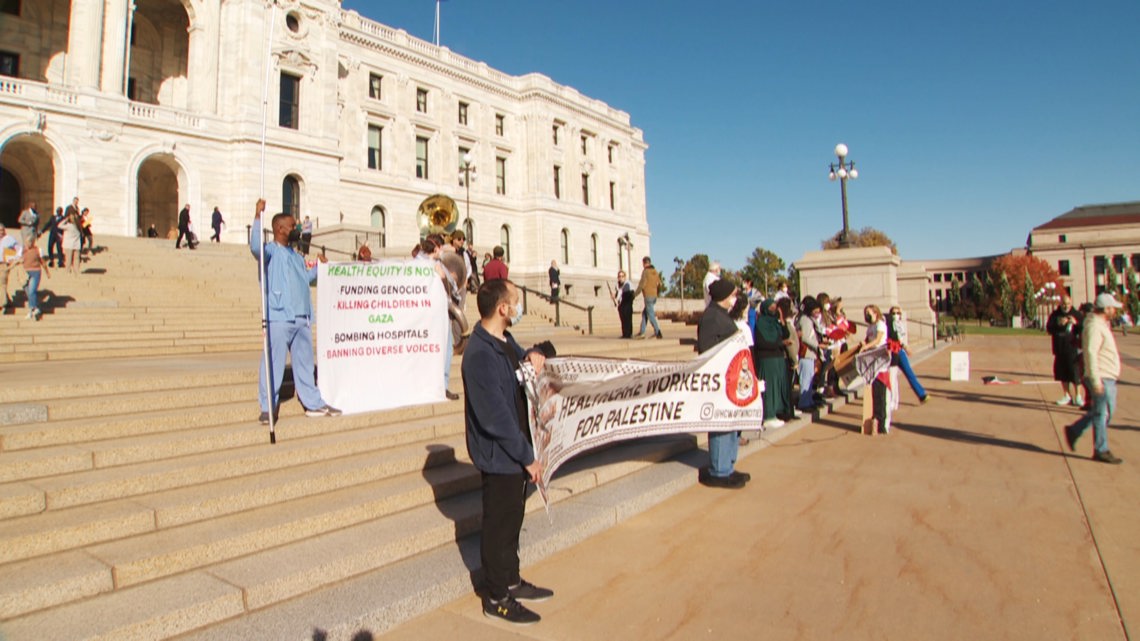

The World Health Organization says only a fraction of hospitals still function in Gaza after the bombings by Israeli military.
ST PAUL, Minn. — Health care workers rallied at the state capitol, demanding Minnesota’s healthcare systems support the liberation of Palestine, aid its hospitals and workers, and allow employees to openly voice their opinions.
The World Health Organization says only a fraction of hospitals still function in Gaza after the bombings by Israeli military with health care workers being among those killed. Leaders of the Israeli military say that Hamas stores weapons and hosts operations at hospitals.
But Health Care Workers for Palestine says there is nothing complicated about ensuring Palestinians have access to health care and are urging their employers to take a stand.
Organizers are asking Minnesota’s healthcare systems to support the liberation of Palestine, aid their hospitals and their workers, and allow employees to openly voice their opinions.
“We have been watching a live streamed genocide directly targeting hospitals for over a year and watching hospitals be bombed,” said organizer Alycia Garubanda.
Garubanda says multiple Minnesota healthcare systems have silenced conversations about Palestine.
The group says HCMC banned a Palestinian physician from teaching more about Palestinian Health.
HCMC calls that a “false narrative” and in a statement said that “we are saddened by the notion that hosting specific people or sharing specific messages is the only valid way to stand in solidarity. Activism takes many forms and we all have the ability to contribute in ways that align with our own values.”
“There’s a real, I think feeling of censorship and repression. I think that a lot of healthcare workers are afraid to speak out,” said Pediatrician Aarti Bhatt. “I don’t think that’s political. I think people do need access to health care to live healthy lives.”
Health Care Workers for Palestine also says a webinar from PrairieCare’s DEI Clinical Consultant was taken down. The group says the webinar mentioned Palestinian mental health, along with the needs of other BIPOC communities.
Prairie CARE said in a statement that the presentation was never banned and as a healthcare provider it will ”support a peaceful end to the suffering in the Middle East with compassion for all those affected.”
The Jewish Community Relations Council said it longs to see peace between Israel and its Palestinian neighbors.
“This peace can be achieved as soon as Hamas, the genocidal terrorist government of Gaza, surrenders and returns the estimated 100 hostages,” the statement read.
Maryam, who asked to not use her last name, is a nurse, student and Palestinian.
“Everything that we’ve ever known, friends, family, everyone’s being, like, bombed and massacred,” said Maryam. “No Palestinian has a chance to even grieve that.”
Maryam said the oath that health care workers take goes against staying silent.
“What I’m calling for is for them to stand by their oath that they swore to and advocate for the injustice that is happening in the world,” she said.



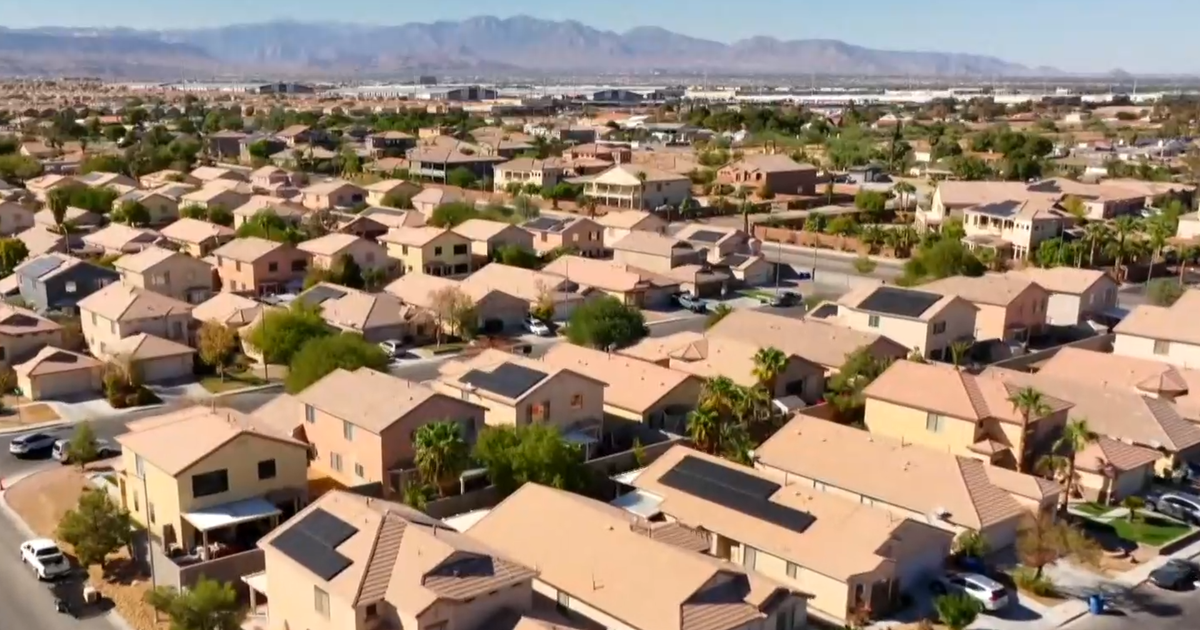

GIPHY App Key not set. Please check settings